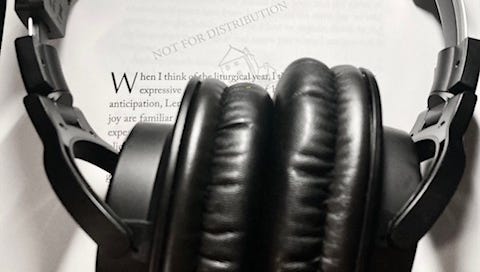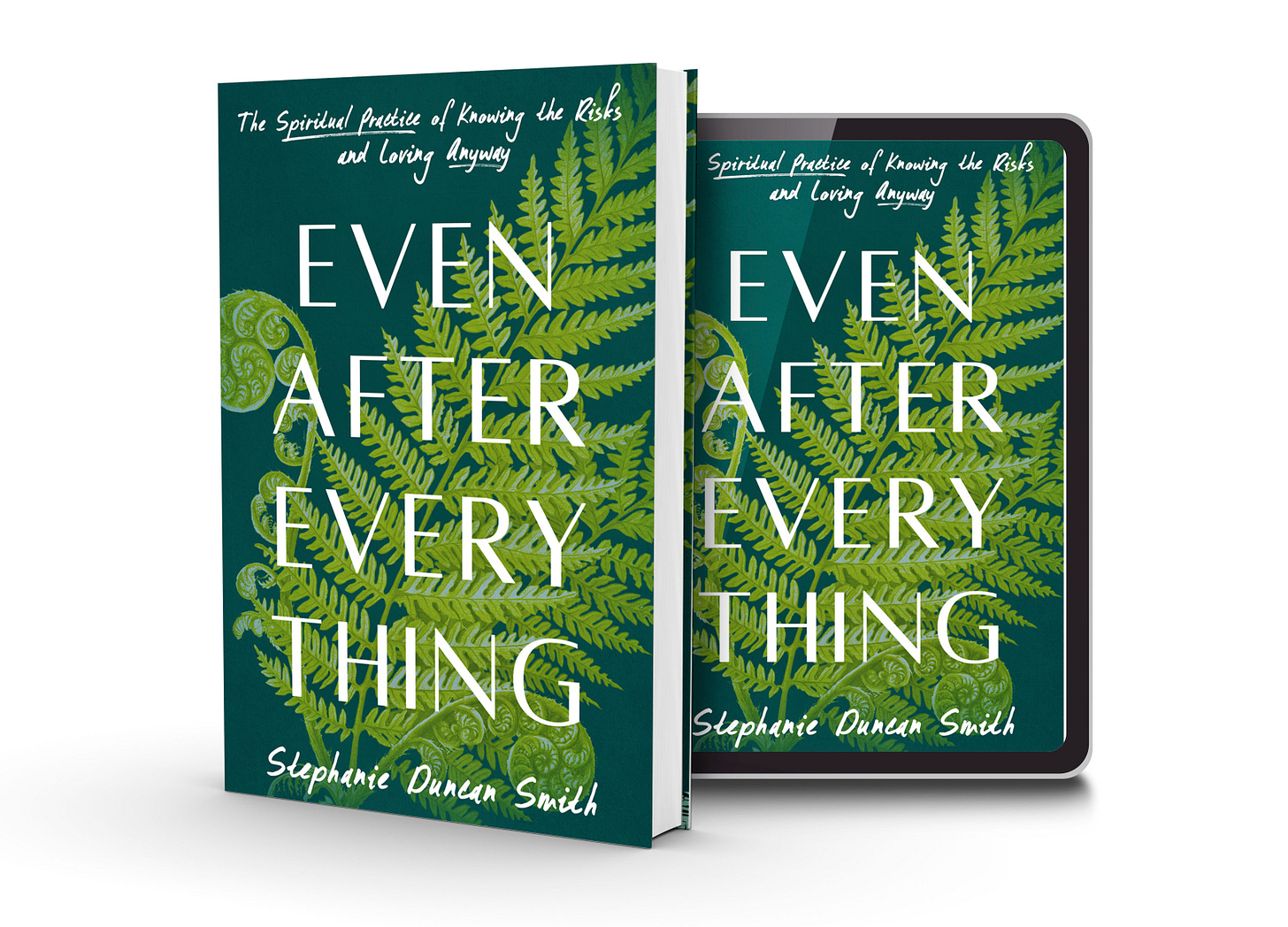5 Writing Lessons from the Recording Studio
Notes from a first-time narrator while recording my audiobook
I’m in the studio recording my audiobook this week, and while I have spent years writing and editing this manuscript (the scoop here!), I have not yet once read it aloud word by word consecutively. It’s like encountering the narrative all over again, surprising me with the aliveness of the text.
And also, if I’m honest, the editor in me already wants to make changes that are too late to be made. Such is the creative life: we give a work our all, then our call is to release. She’s living a life of her own now. As much as I might want to keep her under my wing as well my redlines, her independence from me is as it should be.
I’ve been in the studio with a wonderful sound engineer and an incredible director, Tavia Gilbert, and since I have never done this before and Tavia has won nearly every possible award in the industry as a professional voice actor, I thought I’d get smart and ask her for some tips in advance.
As I took in her response and put in hours of studio time, I quickly realized how many things the narration process has to say to the writing process. So today I wanted to share with you some of the best practices she passed to me, as well as some reflections on where our best work comes from, in writing on the page as much as narrating behind the mic.
1) Your best work comes from speaking person to person.
When I got settled into my studio space on day one, Tavia’s first question to me was to ask if there might be one person in mind that I could “tell” the book to. I do have a person. I thought of her, and was immediately focused, centered. This mindset shift rendered the endeavor intimate and personal, rather than a deliverable I had been contracted to produce.
If you’ve ever been on a stage, you know that the stage lights make it very difficult to make out the audience. They can see you, but you can’t really see them (I always find this disorienting). Reading is not that. The reading experience is up close and personal. When it comes to writing, think of your words not as one to the masses, but one to one, because this person-to-person exchange is what defines the reading experience.
2) Your best work comes when you are relaxed.
As Tavia told me,
“The more relaxed you are, the more conversational you will be. An audiobook narration is not an elevated performance or a presentation of the work. It’s an inhabitation, an embodiment. That comes from feeling comfortable and safe.”
Writing, too, is a practice we inhabit. An embodiment. Just as nerves come through in our physical voice, nerves come through in our writing voice when we’re straining, trying too hard. When we’re relaxed, that’s when the words find their flow. And when we feel safe, we’re bound to feel relaxed. The difference will always show to our readers as well as our listeners.
3) Your best work comes when you free yourself to fumble.
In audio-speak, when you need a do-over of a line, it’s called a pick-up. I like the generosity of this term, which doesn’t proclaim error as much as it simply invites the narrator to pick up where they left off. As Tavia put it, “No ‘sorry’ is needed when you stumble.”
The same is true for writing, which is animated by the process of trying, stumbling, trying again. The scratch-outs are proof that you showed up the work, and that can only be called courage. You’re allowed to scrap it, start over, or pick up where you left off anytime. You set the terms, and you are allowed to fumble without apology.
4) Your best work comes when you allow yourself to be connected with and affected by the story being told.
Tavia encouraged me to,
“Read at a pace that will allow you the space to feel the feelings, see the images, think the thoughts in real time. So that pace will not be an arbitrary ‘audiobook pace,’ but rather a spaciousness that gives you room to truly experience what you’re sharing with your listeners.”
Isn’t this what enlivens our writing to begin with? My read here is to stay close to your narrative material. Don’t be above the narrative—acting on it, subjecting it to your designs. Rather, let yourself be immersed in the story, and so affected by it. The criticalness of safety reiterates itself here, as immersion is only possible when we feel safe.
5) Your best work comes when you take good care of the muscles you are asking much of.
Your diaphragm is the muscle that supports your voice, and in audio work, of course, your voice must be protected at all costs. Hydration and tea breaks have saved me these past few days, as well as vocal rest when not in the studio. It is just as true that in one’s writing practice, your voice must be protected at all costs. We cannot task it with constant output if we’re not nourishing it, giving it rest, “feeding the lake,” as writer Jean Rhys says.
Is it weird to say that my own words made me happy-cry this week? They did. I receive this not a problem, but I think the fruit of presence. It was such a gift to step in this story in this particular way, with such support. Catch me on Instagram for more as I continue recording today!
P.S. You’re hearing it here first—
Even After Everything doesn’t come out until October 15th, but you can start reading the intro + first two chapters today! Once you’ve preordered, drop your order # in this form, and my publisher will send it to you right now!
Take heart and stay feisty,








Invaluable! Thank you! 💚
Just finished recording my audiobook last week and I wish I could have read this beforehand! But also ditto this advice! I found my reading groove by imagining I was talking to my clients…since most of the book is what I have said to them before! That helped it feel more natural for me.